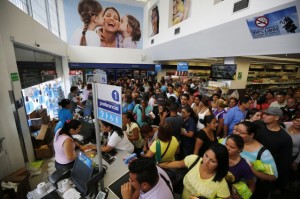Venezuela to launch its CBDC as it tackles hyper inflation
Venezuela, the country that is struggling to deal with hyperinflation for the past many years, has announced that it would be launching its digital version of the currency Bolivar from October 1.

The government believes that it would help it to combat the hyperinflation that it has been going through for the past many years due to the sanctions and blockage from the US. At the same time, the government has also announced that it would be cutting six zeros from its fiat currency. This would not lead to a change in its value but is just a measure to make it easy to print notes and also easier to manage in the long term. The country had cut five zeros from its fiat currency in 2018 but that does not seem to have had much effect on the economy or the inflation which is now over 9000 percent.
The Venezuelan central bank has said that the digital bolivar would initially use SMS based system for payments and transfers and it would then see how it helps with the payments system. The bank has been trying to spearhead efforts to digitize the economy and the government has claimed that over 77% of the economy has been digitised. It also tried to introduce a digital currency called petro for its crude oil reserves as a means of circumventing the sanctions from the US but that didn’t take off very well and it continues to struggle economically. Its own citizens weren’t too enthused to use the petro taken despite strong efforts from the government to encourage its citizens to use it.
It remains to be seen how the public would react to the digital bolivar and how the uptake would be. Even if it were used, its effect on controlling inflation is still not known even though there are other small countries like the Bahamas and Cambodia which have already started using CBDCs but data about them and their effects on the economy is still very scarce.
It is learnt that over 60 countries around the world are in various stages of launching their CBDCs. While some small countries have already launched it, some larger countries like China are on the verge of launching it but how each of the CBDCs is going to talk to the other, their conversion rates and their effects on the world economy and other related data is still not very clear.









